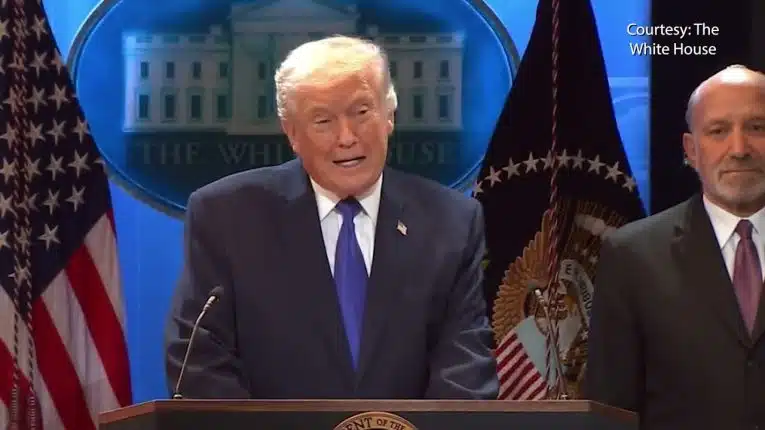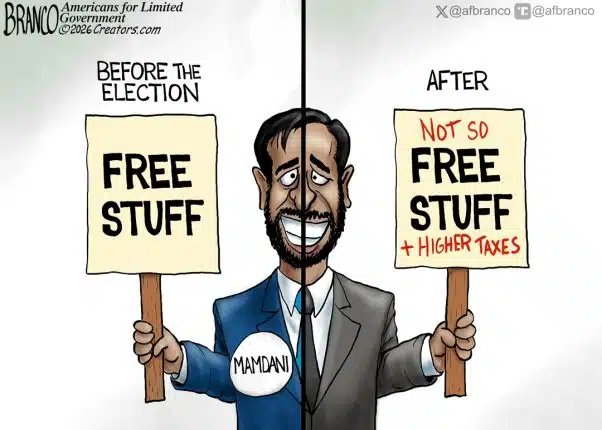On Aug. 16, the National Telecommunications and Information Administration (NTIA) published a Q&A on its proposal to cede oversight of the Internet Assigned Numbers Authority (IANA) functions — which connect easy to remember domain names with numerical IP addresses — to the Internet Corporation of Assigned Names and Numbers (ICANN).
Normally, such a Q&A would not even be noteworthy to warrant much attention but towards the end was this curious addition: “Did the U.S. government conduct an analysis of the impact on competition of the IANA stewardship transition?”
Which, is a really good question. Spot on, in fact. To which, NTIA states, “In its decision to move forward with the transition at this time, the U.S. Government did not identify any significant competitive issues relating to the proposed transition.”
That’s one way of putting it. But perhaps the reason the agency “did not identify any significant competitive issues,” particularly on antitrust law concerns, is because it did not bother looking. Like, at all.
How do we know that? Because on June 14, Americans for Limited Government filed a Freedom of Information Act request for “[a]ll records relating to legal and policy analysis developed by or provided to NTIA concerning antitrust issues for the Internet Corporation for Assigned Names (ICANN) if NTIA relinquishes its responsibilities” over the domain name system.
The agency contacted us and we clarified and limited what we were looking for to simply between Jan. 1, 2014 to present, covering the entire period of the transition, which was proposed publicly March 14, 2014.
On Aug. 16 — the same day the curious antitrust Q&A coincidentally appeared on NTIA’s website (way to cover your asses there, guys!) — the agency responded to our FOIA request that “NTIA has conducted a thorough search for responsive records within its possession and control and found no records responsive to your request.”
Which is a lot different than the agency saying it “did not identify any significant competitive issues relating to the proposed transition.”
So, to answer the Q&A’s query, “Did the U.S. government conduct an analysis of the impact on competition of the IANA stewardship transition?” The answer is no, it did not.
This despite the fact that the June 1998 Clinton White Paper, which soon created the basis for ICANN’s contract with the government, explicitly considered the antitrust issue at the outset: “Several commenters suggested that the U.S. Government should provide full antitrust immunity or indemnification for the new corporation. Others noted that potential antitrust liability would provide an important safeguard against institutional inflexibility and abuses of power.”
To which, NTIA replied, “Applicable antitrust law will provide accountability to and protection for the international Internet community. Legal challenges and lawsuits can be expected within the normal course of business for any enterprise and the new corporation should anticipate this reality.”
That is, NTIA was saying that it would not provide antitrust immunity to ICANN when the time ever came it was no longer under a government contract, and that it would have to fully comply with antitrust law.
Which it might have a hard time doing, seeing as it will be the only entity in the world responsible for assigning and bidding out top-level domain names like .com, .org and thousands of others. Every year, it will exclusively collect hundreds of millions of dollars of fees for every domain name sold — in the entire world. It’s a monopoly. And should the U.S. give way to the transition, it will be an unregulated monopoly.
Moreover, more than one analysis of the antitrust implications to do with the transfer should have turned up in NTIA’s records.
For example, the Cross Community Working Group (CCWG) on Enhancing ICANN Accountability’s March 10 document, which was addressed directly to NTIA administrator Lawrence Strickling, “IANA Stewardship Transition Proposal and Enhancing ICANN Accountability Recommendations.”
In Annex 15 on stress tests, on page 470, it highlights antitrust as a potential problem, daresay, a significant competitive issue: “Stress Test #3: Litigation arising from existing public policy, e.g., antitrust suit. In response, ICANN Board would decide whether to litigate, concede, settle, etc.”
The CCWG noted the consequences of an antitrust suit could include “Significant interference with existing policies and/or policy development relating to relevant activities,” and concluded that “Existing measures are inadequate.”
Surely, this document would have been responsive under the Freedom of Information Act.
So too would have a May 19 letter to Strickling and the Secretary of Commerce Penny Pritzker from U.S. Senators Ted Cruz (R-Texas), James Lankford (R-Okla.) and Mike Lee (R-Utah), who chairs the Senate antitrust subcommittee, which stated, “There are also concerns regarding… ICANN’s future antitrust status, and the potential for ICANN to impose global taxes without U.S. government oversight. None of these have been adequately addressed.”
As should have Americans for Limited Government President Rick Manning’s May 24 written testimony to the Senate Commerce Committee on this very subject. In it, Manning outlined several significant potential antitrust liabilities awaiting ICANN once it is out there on its own.
It is beyond belief that the CCWG report, the Cruz-Lankford-Lee letter and Manning’s testimony would not have found its way to the agency, even to be read or refuted.
But very well, if that is NTIA’s final answer. The agency is so aloof that not only did it not conduct any legal or policy analysis on the antitrust issue on its own, despite fully anticipating the issue in 1998, it did not bother to consider such analyses when they were delivered to NTIA and to the Senate Commerce Committee — even though they were published weeks prior to our FOIA request.
It’s not like we invented this issue. It was foremost on many commenters’ minds in the 1998 Clinton White Paper. And they would not be the last.
Perhaps too during the period of transition from Jan. 2014 right up to June 9 of this year, when the agency approved ICANN’s transition plan, the agency might have considered the work of A. Michael Froomkin and Mark A. Lemley in 2003, “ICANN and Antitrust,” which lays out the significant antitrust issues facing ICANN. Or maybe “ICANN’s Escape from Antitrust Liability,” a 2012 article by Justin T. Lepp in the Washington Law Review. Or even Milton Mueller’s response to Manning’s testimony on May 25 where he wrote, strikingly, that “The U.S. asserted the power to control changes in the root zone to protect Network Solutions (now Verisign) from antitrust liability, not to protect ICANN from foreign governments or to protect the open Internet.”
No? Didn’t read those either? You should have. They were important. This author wrote about it, too, repeatedly in these pages, for what it’s worth, trying — admittedly, in vain — to raise the alarm bells on the issue, as early as July 2014 in “The Internet Antitrust Trap.”
Perhaps now that Americans for limited Government’s FOIA request was highlighted in the Wall Street Journal by L. Gordon Crovitz, who notes that to escape antitrust liability ICANN might eventually come under United Nations oversight, the agency will finally get up to speed on the issue — which should have been at the forefront of any transition proposal.
And maybe, just maybe, Congress will figure out that the agency simply has not done its homework on perhaps the greatest challenge facing the transition of the government’s stewardship of the Internet — and prohibit it once and for all.
If we can figure this out, surely a potential competitor of ICANN with millions or billions of dollars to spend can and will figure it out, too — in a lucrative antitrust lawsuit akin to MCI v. AT&T (1983) that could risk splintering the free and open Internet into a million pieces.
Robert Romano is the senior editor of Americans for Limited Government.







